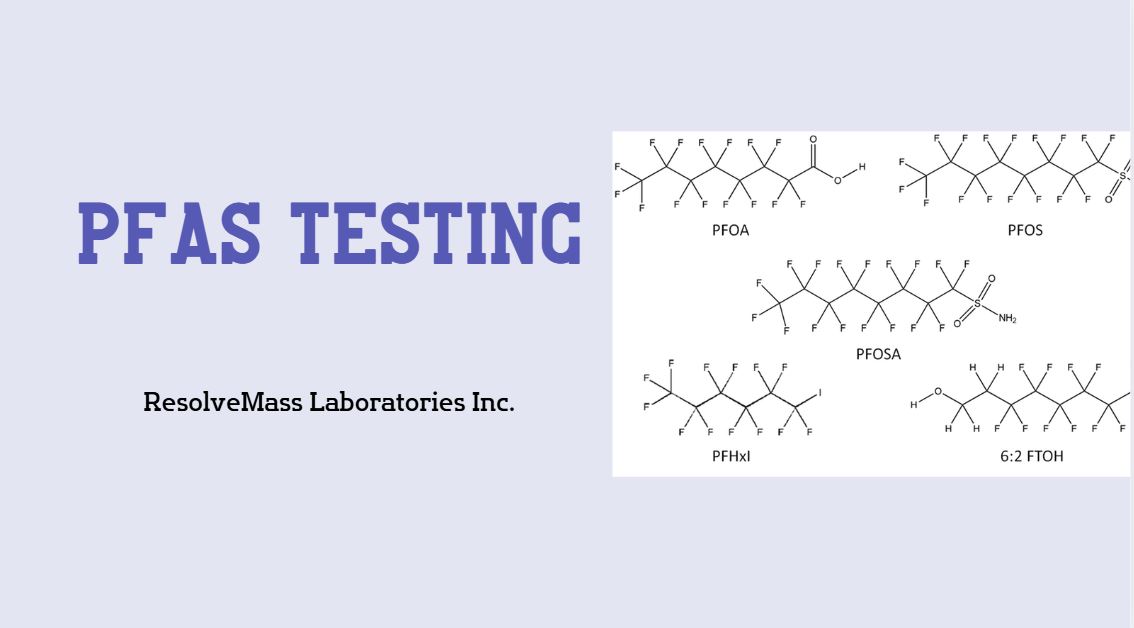Introduction
TGA Analysis in Pharmaceuticals is one of the most essential tools for checking how drugs behave when exposed to heat. At ResolveMass Laboratories, we use this method to help pharmaceutical companies understand the thermal stability, shelf-life, and material compatibility of their products. Our expert team works closely with drug developers to improve safety and meet regulatory requirements with ease.
Through advanced equipment and deep knowledge, we make sure that the information gathered from TGA testing helps reduce risks, improve formulation, and support smooth regulatory submissions. When done properly, TGA gives clear insights into how substances break down under heat, helping ensure drug products are safe and reliable.
What is TGA Analysis in Pharmaceuticals?
TGA Analysis in Pharmaceuticals is a technique where a sample’s weight is monitored while it is heated under controlled conditions. This helps scientists understand how materials change when exposed to different temperatures. In the pharmaceutical industry, it is commonly used to:
- Check thermal stability of active and inactive ingredients
- Study decomposition behavior of compounds
- Measure how much water or solvents remain in a material
- Detect moisture or hydrate levels
- Identify solid-state changes like polymorphic transitions
This analysis plays a key role in making sure medicines remain stable from production through storage and delivery.
👉 Explore: What is TGA Analysis? Principles and Applications
Why Thermal Stability Matters in Pharmaceuticals
Thermal stability tells us how a drug will respond to heat during various stages like manufacturing, shipping, and storage. A drug can be affected during:
- Drying or milling in the factory
- Long-term storage on pharmacy shelves
- Temperature changes during transportation
- Use by patients under different conditions
With TGA Analysis in Pharmaceuticals, drug makers can see at what point their products begin to degrade. This helps them make changes early and avoid serious quality issues later on.
Decomposition Behavior and Its Importance
When a drug or material breaks down due to heat, it could affect the medicine’s safety or performance. That’s why understanding decomposition is so important. With TGA, scientists can:
- Identify the exact temperature where breakdown starts
- Observe each step of the breakdown process
- Detect small amounts of leftover solvents or impurities
- Study how fast or slow a substance degrades
At ResolveMass Laboratories, we use high-quality instruments to deliver detailed thermal profiles. These results help researchers create safer and more effective products.
👉 Read More: Thermogravimetric Analysis (TGA) for Material Characterization
Key Applications of TGA Analysis in Pharmaceuticals
Moisture and Solvent Detection
TGA accurately shows how much moisture or solvent is left in a sample. This is crucial for knowing how to package a drug and how it should be processed in manufacturing. High moisture levels can affect a drug’s stability, shelf life, and effectiveness. By using TGA Analysis in Pharmaceuticals, companies can make better choices in drying, storing, and sealing their products.
Stability Testing
By using TGA Analysis in Pharmaceuticals, companies can meet international stability testing guidelines. It shows the thermal stress levels that drugs can handle without breaking down. This helps predict how long a product will remain safe and effective under different storage conditions. It also supports faster approval by providing solid data for regulatory submissions.
Compatibility Testing
Testing how a drug reacts with excipients helps prevent negative interactions. This is especially important in the early stages of product development. TGA makes it easier to identify any unwanted reactions or changes during heating. This ensures that drug components work well together and won’t impact the product’s safety or performance.
Characterizing APIs
TGA helps find physical forms like salts or polymorphs of an Active Pharmaceutical Ingredient (API). This is vital for keeping batches consistent. Knowing the exact form of an API ensures that the drug performs the same way every time. TGA Analysis in Pharmaceuticals also supports patent protection by identifying unique thermal profiles of specific compounds.
👉 See: DSC vs. TGA: A Simple Comparison Guide
TGA vs. DSC in Pharmaceutical Testing
| Feature | TGA | DSC |
|---|---|---|
| Measures | Weight loss | Heat flow |
| Purpose | Decomposition, moisture | Melting, crystallization, polymorphism |
| Data Output | Weight vs. temperature | Heat vs. temperature |
TGA is often done before or together with Differential Scanning Calorimetry (DSC) to fully understand how a substance behaves with temperature changes.
Integrating TGA Analysis in Pharmaceuticals into Development
Using TGA Analysis in Pharmaceuticals early in your workflow improves product quality and speeds up approval. Some key benefits include:
- Fewer problems during stability testing
- Faster submission to regulatory bodies
- More accurate shelf-life predictions
- Better safety data for patients and providers
TGA results can also help protect intellectual property by showing unique forms of the drug that may be patented.
Our TGA Testing Process at ResolveMass Laboratories
We follow a proven and structured method to ensure every result is reliable:
- Sample Preparation: Clean, controlled settings to avoid contamination
- Calibration: Instruments checked with certified standards
- Thermal Testing: Custom temperature programs for each compound
- Data Review: Skilled scientists interpret every result
- Reporting: Easy-to-read charts and expert conclusions
This full-service approach ensures that every client receives clear and actionable insights.
Why Choose ResolveMass for TGA Analysis in Pharmaceuticals?
ResolveMass Laboratories is trusted by pharma leaders because we offer:
- ISO and GMP-certified services
- Full confidentiality and secure data handling
- Real-time support from experienced professionals
- Flexible testing methods to match your needs
- Accurate, high-resolution testing results
We are here to support your team with the best tools and knowledge for thermal analysis.
Frequently Asked Questions (FAQs)
TGA, or Thermogravimetric Analysis, is a method used to study how the weight of a material changes when it is heated. In pharmaceuticals, it helps check the stability, moisture content, and decomposition of drug ingredients. This test is useful for making sure medicines stay safe and effective during storage and use.
TGA testing shows how a substance reacts to heat by measuring weight loss as temperature increases. It helps identify moisture, leftover solvents, and the temperature at which a drug starts to break down. This information is important for improving drug stability and shelf life.
The TGA test checks for things like moisture, solvents, thermal stability, and decomposition patterns in a sample. It can also detect changes in the material’s structure. In the pharmaceutical industry, this helps to make sure drugs remain safe and stable throughout their lifecycle.
TGA offers many benefits, such as finding out how stable a drug is under heat and how much water or solvent is left in a sample. It helps avoid problems in manufacturing and packaging. This testing also supports better product quality and faster approval from health agencies.
TGA is detected using a special instrument called a thermogravimetric analyzer. The machine heats the sample while recording changes in its weight. The results show how the material behaves under different temperatures, helping experts understand thermal properties of the drug.
TGA has some limits. It only shows weight changes, so it can’t detect chemical changes unless they cause weight loss. Also, results can be affected by how the sample is prepared or the settings used during the test. Careful setup is needed to get accurate and useful data.
Yes, TGA can detect solvents in a sample. When the material is heated, any leftover solvents will evaporate and cause a drop in weight. This helps identify how much solvent is still present, which is important for safety, storage, and quality control in pharmaceuticals.
TGA can be used to test many materials in the pharmaceutical industry. This includes active pharmaceutical ingredients (APIs), excipients, drug formulations, salts, and even packaging materials. It helps check their stability, moisture content, and how they break down when heated.
Yes, there are official guidelines for using TGA in pharmaceuticals. Organizations like ICH, USP, and EMA recommend TGA for stability testing, moisture analysis, and material characterization. Following these guidelines helps ensure reliable results that meet regulatory standards.
Conclusion
TGA Analysis in Pharmaceuticals is a critical part of ensuring medicine quality, stability, and safety. It helps scientists understand how heat affects drug substances and materials, and it plays a major role in drug development and regulatory success. By identifying potential risks early, TGA supports better product design and helps avoid costly issues later. It is a trusted tool for creating safe, effective, and reliable medicines.
ResolveMass Laboratories is your reliable partner for precise, expert-led thermal testing. Whether you’re developing a new drug or improving an existing one, our TGA services will give you the confidence to move forward.


